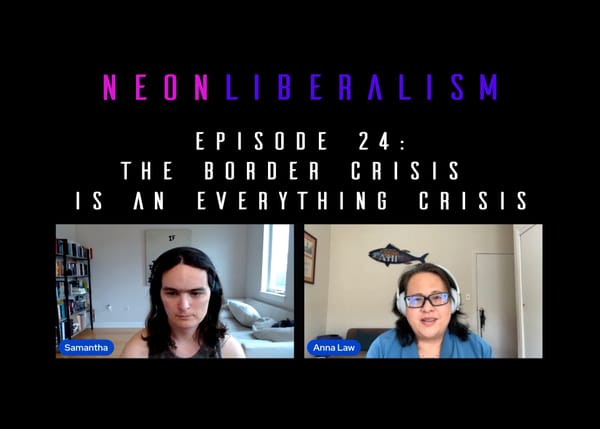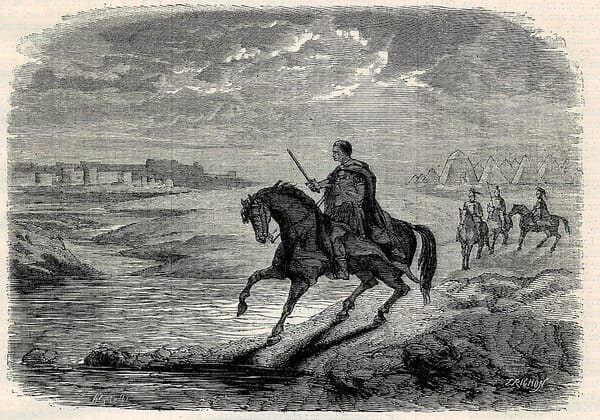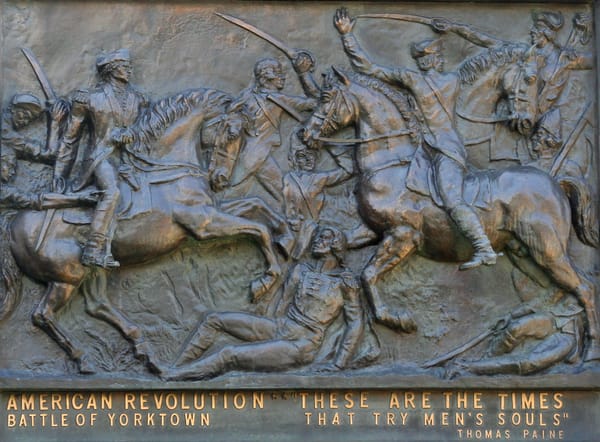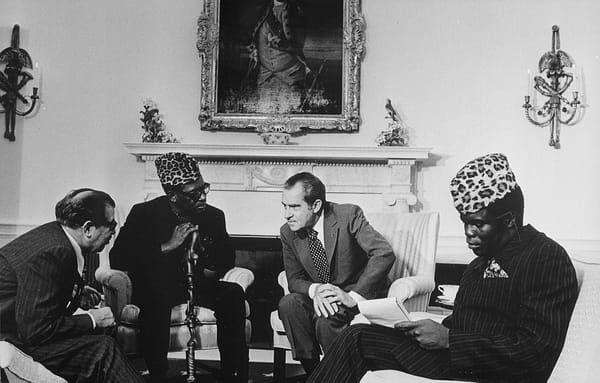“Adolescence” and the Right’s War on Men
A large part of the media today is devoted solely to making men into terrible people.
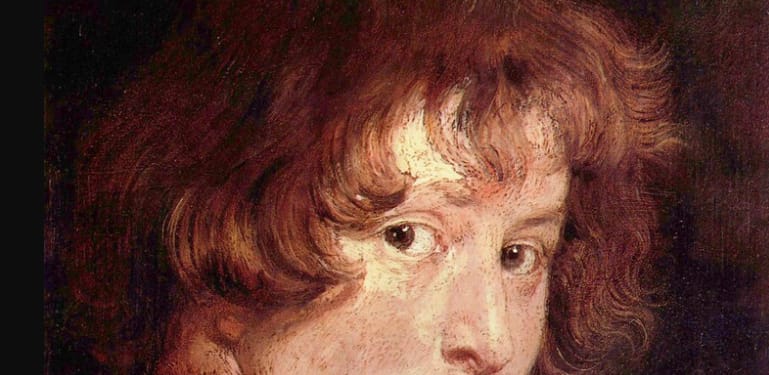
There’s never been a bad time throughout the entirety of human history for a conversation about why men murder women, but something made Netflix’s Adolescence seem particularly timely. In the UK, where the miniseries is set, Violence Against Women and Girls, or ‘VAWG’, increased by 37% between 2018 and 2023. Sexual violence is barely prosecuted, and when it is the process can be ‘more traumatic than the actual rape’.
In the four-part series, a thirteen-year-old girl is stabbed seven times and left for dead. By the next morning police firearms officers have the suspect in custody, thirteen year-old Jamie Miller. Miller and his father, Eddie, are questioned by police and Jamie’s walls of denials and solicitor-trained ‘no comments’ fall when he is confronted by CCTV footage of the murder. There’s no doubt that he did it, this is no whodunnit, but the question of why remains.
From a production standpoint, Adolescence is an oddity. It is reminiscent of BBC and ITV crime dramas like Broadchurch and Happy Valley that occasionally make it across the Atlantic to discerning TV viewers, but it was made and distributed by Netflix and executive produced by Brad Pitt. This has garnered it far more international attention than other British shows, with glowing write-ups in Forbes and The New York Times. The praise is deserved. The acting and direction are superb: star and co-creator Stephen Graham plays Eddie as the slightly out-of-time working class white male that anyone who has spent time in the UK has met a thousand times; Ashley Walters, a former rapper of all things, breathes new life into the world-weary detective role as Bascombe, the lead detective on the case. Owen Cooper, who plays Jamie, is a revelation—fourteen years old and there isn’t a single second where he isn’t in control of the emotional timbre of his character. It’s even a technical marvel, each episode shot in a continuous uninterrupted take. The show’s impact has been such that it has been brought up in Parliament and the Prime Minister has said that he watches it with his own teenage children and plans to have it shown in schools. The Guardian, the UK’s leftmost mainstream newspaper, says that the series is ‘so powerful it could save lives’.
I say all this so that you know that when I criticize the show it’s from a place of deep respect. For all the perfect moments there are instances that an old creative writing teacher of mine would refer to as ‘clangers’, as obtrusive as a dozen frying pans falling to the floor during the calmest moments of a requiem. Only a handful, but they take the viewer out of what should be uninterrupted emotional intensity and feel, frankly, like being talked down to.
It emerges during the course of the investigation that Jamie was effectively being cyber-bullied by the victim, something the police were unaware of because they didn’t clock that two of the emojis she used were in reference to, quote, ‘the manosphere’—the firecracker emoji apparently refers to the ubiquitous Red Pill, the 100 emoji refers to the ‘80/20 rule’ that states that 80% of women pursue 20% of men. Bascombe’s autistic-coded son has to explain this to him. Andrew Tate is mentioned more than once. The show has already inspired one ‘do you know what your children are texting?’ article in the UK’s notorious Daily Mail tabloid that fails to show that the firecracker and 100 emoji are ever actually used by the incel subculture. I contacted Annie Kelly, an expert in the manosphere and host of the QAA Podcast, and she had also never seen these emojis used in this way, and she said that the generic pill emoji is much more commonly used. These scenes have the tenor of a Very Special Episode, an after-school special. It feels beneath what is otherwise such a brilliantly put together work of art, one in which viewers are allowed to be flies on a number of dour and depressing walls, to inject this moment that is clearly addressed to the audience. They make text what should have remained subtext, and this is disappointing because when you start watching Adolescence intently, phone down, the notes they don’t play create something far more satisfying.
The Miller family are not poor, and the nondescript Northern town the series is set in is not deprived. Eddie runs a plumbing company, taking on out-of-hours emergency work—this is the kind of job that pays well beyond the median wage, and in monetary terms could place the family well inside the middle classes. England does not have a particularly logical class system however, so the fact that Eddie has a thick Scouse accent and enjoys sports means that no matter his wealth and position as a business owner with multiple employees he will always be regarded as working class. Jamie’s school is typical for a publicly-funded UK school of today—it is underfunded and semi-feral, more like a prison than the actual prisons we see (DI Bascombe calls it a ‘fucking holding pen’). On that note, Jamie ends up being held before his trial in a youth mental health facility used mostly for training because of overcrowding in actual prisons. The facility is run by a very thinly veiled version of the government contractor G4S, a company so integral to the limited functioning of the British state that it cannot be allowed to fail despite, at one point, losing control of an entire prison. The only organization that seems to be well-funded are the armed police.
To point out economic austerity in a narrative set in modern Britain would be like pointing out the air surrounding its characters. For over forty years the country has been in a managed decline, run almost exclusively by a Conservative government that has overseen the replacement of the country’s industry, largely in the area that Adolescence is set, with service jobs and a bloated, unsustainable rentier economy. Potentially, this has disrupted the slow liberalization of the British mind—just as we can no longer take for granted that each generation will be better off than the last, we cannot assume that each generation will rebel against the stuffy mores of its predecessors, driving social progress onward. Men in particular are moving hard to the right.
The easy answer would be that as inequality ramps up, men look to influencers like Tate and the greater ‘manosphere’ for answers. This is true to a point: the Millers are middle class, but the difference between them and somebody in true poverty is minute compared to the gap between them and the truly wealthy. Even if he grew up to be relatively comfortable, Jamie would be nothing compared to a handful of genuinely rich people who he would be exposed to in politics and culture every day, and he would see how somebody who went to the right school can get $60 million from Amazon for doing nothing or £100 million for working at a failing social network. These conditions are psychologically toxic, and they rarely produce a desire to change the world for the better. Mostly, it creates a desire to exercise what little power a person has through various self-sabotaging or antisocial behaviors. Jamie’s school is a prime example of this: students are needlessly violent, often in situations where they know they will be immediately punished and gain nothing, or they are broken and timid (two girls with middle-class affects shriek ‘Sir, do you think it’s terrorism?’ when a fire arm goes off). It’s Eloi and Morlocks.
Inequality isn’t inevitable. It is a choice that was made for all of us by identifiable groups and individuals—the Mont Pèlerin Society, Ludwig Von Mises, Friedrich Hayek, Enoch Powell, Margaret Thatcher, Tony Blair and so on. Today, neoliberalism, a term that is overused but should still retain an appropriate level of menace, is maintained by cultural and social forces as it transitions to neofeudalism. This is not the result of some conspiracy, but of the same libidinal assemblages that produce neoliberal economics and, in the extreme, fascism (chiefly, a love of cruelty); this libidinal assemblage embodies an extractive and dehumanizing ideology that feeds into both economic theory and culture. Neither is downstream of the other, it’s the same stagnant pool. The cultural form that is most attractive to straight men under current conditions is basically, as Bascombe’s partner DS Frank puts it in the series, ‘that Andrew Tate shite’. This is the psychological front in the right wing’s war on men—it has taken away the material basis for their lives and communities and is now making it so they are completely psychologically unable to understand the world or connect with the people in it.
Although Tate is primarily known as a manosphere influencer, his main product is get-rich-quick advice through his Hustler’s Academy. Example: tell a family member to drive for Uber and give you a percentage of the money they make. Instant passive income. Elsewhere he has claimed to be able to destroy ghosts with his mind, be able to fly by moving his arms extremely quickly like a hummingbird and that he ‘wield[s] the Shadow Fist’. This is an old technique for high-commitment groups—weed out the people whose skepticism may disrupt a group’s functioning and its leader’s authority by making it so ludicrous that only the truly desperate and credulous will be attracted to it. Try to apply Tate’s money-making tips or seduction techniques in the real world and you’ll fail—one YouTuber did the math and determined that his adherents would be better off working minimum wage jobs.
Something that Adolescence does that is interesting is that it doesn’t make Jamie a devotee of Tate or even particularly interested in the manosphere or right-wing thought—he in fact mentions that he feels repelled by it. The only character who evinces an interest in ‘Red Pill’ ideas is Jamie’s victim, Katie, who uses its terminology to bully him. Many people who have seen the series would like it to be “a cautionary tale about getting teenagers off screens and engaging with real life again”, but that just isn’t there in the text. The Manosphere elements are incidental to the plot, window dressing that changes the words used in the kind of sexualized bullying that has existed since time immemorial without changing its content. Tate did not invent the idea that a man, or in Jamie’s case a boy, is lesser because he cannot persuade women to have sex with him, nor can wealth inequality be the only reason men engage in coercive violence against women and girls–Brad Pitt, A-list movie star and the series’s executive producer, is alleged to have been abusive towards his wife and children.
If Jamie wasn’t driven to murder by Tate et al., if even Brad Pitt, somebody so rich that his abuse occurred on his private jet on the way back from his winery, can be abusive, then what could possibly be the reason that he killed Katie? The show’s third and perhaps best episode dives into this without giving a full answer–Jamie hasn’t even confessed at this point. In the episode, Briony, a court-appointed psychologist tasked with determining whether Jamie understands the charges against him and the enormity of his crime, speaks with Jamie about what masculinity means to him. Again, it is what he doesn’t say that’s important, the ideas that he simply isn’t able to give voice to. For example, when Briony asks if his father has any female friends he initially thinks that she’s asking if he is having an affair. When she clarifies that she means platonic friendships he is baffled, just saying ‘your mates are your mates.’ He reveals that he didn’t even like Katie, but he had asked her out after her nudes were shared around the school because he thought that in that state she would be ‘weak’. He calls himself ugly, expecting Briony to contradict him to make him feel better, then flies into a rage when she doesn’t.
The interview concludes with Jamie begging Briony to tell him that she likes him–not romantically, but as a person. He can’t comprehend that he could do anything, including murder, that would mean that he isn’t entitled to automatic and uncritical respect. He must be told that he is likeable, and even attractive, and even when he is a prisoner awaiting a slam-dunk trial he believes that he should not be told what to do by a woman significantly older, more intelligent and more accomplished than he is, screaming at her ‘you don’t get to tell me what to do!’ His tantrums can be both childish and surprisingly adult—we will later see his father go into a violent rage, but the only instances of anger we see from him are directed at men, and are immediately met with support and understanding from his wife. Jamie’s anger at Briony has a different tenor—he interprets Briony’s every action to be an attempt to control him, to ‘put words in (his) mouth’. He seems markedly more paranoid that she is trying to force a confession out of him than he was around Bascombe, even though that isn’t her job and it’s very much his. It would appear that he does not see any female power as being legitimate, having seen his mother pick up after his father’s tantrums from a young age and internalized that as their proper role. When they step out of that role Jamie has a role of his own he can play, more thuggish and stereotypically working class than his usual affect, at least when he has his fear under control. Cast your mind back to the previous episode, and you can see it in the way other boys at his school intimidate each other and their female teachers—his affect is almost exactly like the boy who tries to rob Detective Inspector Bascombe’s son. It’s something he’s absorbed passively from the world around him. If he doesn’t get it from the right wing media that outperforms left wing media by a factor of five then he’ll get it from other boys at his school who are steeped in that media space or be targeted like Detective Bascombe’s son, a boy who is too intelligent to go along with hegemonic masculinity and suffers for it.
This all makes the final sequence of the series even more harrowing. His parents try to work out what they did wrong after Jamie finally changes his plea to guilty and what has happened finally hits home. Jamie’s father was beaten by his own father, and he wanted to create a different home life for his children—he seems to have succeeded. They blame time spent on the computer, not knowing that Jamie didn’t involve himself in right-wing subcultures but having no other place to turn. They can’t see that hegemonic masculinity is truly hegemonic, so ubiquitous that even if you are in a loving home, even if you stay away from ideologues like Tate, you can’t avoid it, to the point that it primes you for murder.
The right wing’s war on men consists of inducing insatiable demands in them–for love, respect, money, muscles–and then robbing them of any ability to even partially fill those demands, either by depriving them of the financial means or by convincing them that the only way to meet these absurd standards is by absurd means. Like Jamie, even the richest and most powerful men are left begging to be liked, to be thanked for doing less than nothing. And it’s a compelling story, even utopian: what if you could get everything without effort? What if a dull-witted, emotionally immature murderer deserves to be told how likeable and beautiful he is? A world in which you don’t have to make an effort, never have to improve yourself, never have to deny yourself anything, and you still get everything you want. Selling men on his lie has destroyed them. Anything that was once admirable about masculinity is gone.
Responses to the Crisis of Masculinity assume that men are zoo animals that will only thrive if kept in their natural habitat, and this is another front in the war on men—the idea that all men have an essential nature, called masculinity, and men will wither on the vine unless they are allowed to be masculine. Boys lack male role models, they need factory jobs, they need male teachers.
I could do that, but masculinity is nothing, a phantom. It was something that was made and is re-made in every man, and it can easily be made differently or discarded altogether. White working class straight masculinity produced the men who initiated a pogrom last summer, but it also produced Stephen Graham, M. John Harrison, Mark E. Smith. Nobody is writing editorials about them, but there are white working class men who decide that the circumstances of their birth don’t matter as much as what they can create, in the world or of themselves. When he is questioned about somebody he admires, Jamie brings up the 19th century engineer Isambard Brunel, because he ‘did stuff no one else did’. We only get the briefest glimmers of what men can be if they don’t accept the limitations of hegemonic masculinity, but generally speaking, these aren’t the men who stab girls.
Of course, non-essentialism easily becomes the nihilism of the ‘man without qualities’ without a material basis to support it. The time and money it takes to create oneself are simply not there for most young men, hence why only 8% of artists come from working class backgrounds and actors like Stephen Graham and Ashley Walters are rarities. Most men can’t afford to leave masculinity behind—it’s the expectation anywhere from construction sites to the offices of private equity firms, and if you don’t fit the mold then you will miss out on economic opportunities. Making the kind of world in which masculinity is one option among many and men can experiment with masculinity or jettison it altogether (and women femininity, white people whiteness, black people blackness and so on) would mean rebuilding it from the ground up, and there are as few models for that as there are for living lives free of essentialism.
Adolescence can’t say how radical the change would need to be to stop another Jamie murdering another Katie. Even under 90s-style End of History liberalism it would be a societal shift on par with the Bronze Age Collapse, but today we are in a far worse place, with a large part of the media devoted solely to making men into terrible people, politicians equally devoted to making their lives materially worse and men themselves policing each other. The right is extremely conscious that their future lies in white men, mostly white men without college degrees, and is going to intensify its war on them until they are broken. Shows like Adolescence may not exactly point a way forward, but they can start conversations.
Featured image is Sir Anthony van Dyck, a self-portrait as a teen


